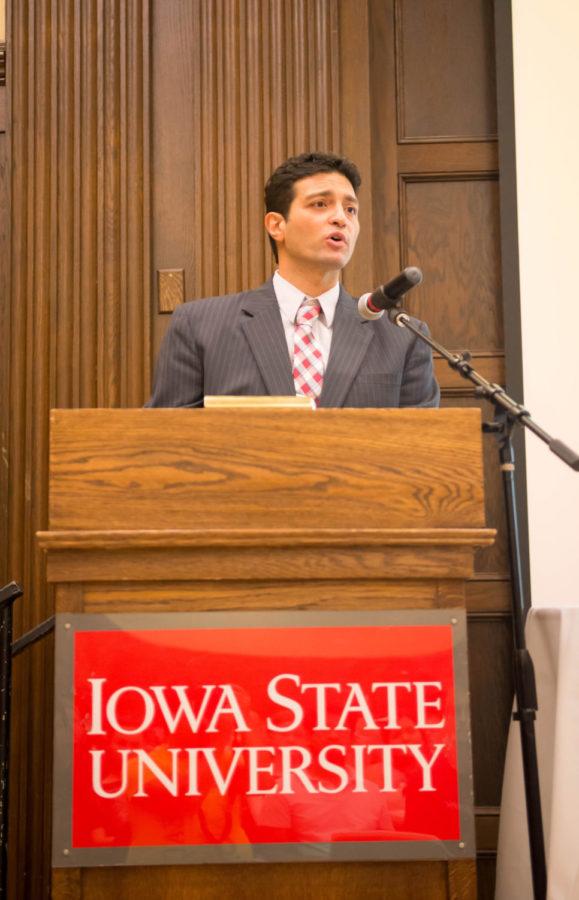Drake professor Mahmoud Hamad puts Egypt crisis in historical context
September 10, 2013
The military-backed Egyptian government has recently taken action on supporters of ousted President Mohamed Morsi. The country has seen several clashes since the ousting of Morsi in July, extending the political instability which has persisted since the revolution
in 2011.
Mahmoud Hamad, assistant professor of politics at Drake University and past professor at Cairo University in Egypt, spoke Tuesday in the South Ballroom of the Memorial Union to put recent Egyptian events in context of the country’s political history.
Hamad explained Egypt’s political history including its association with the Non-Aligned Movement, the military coup in 1952 and ousting of the long ruling dictator Hosni Mubarak.
Hamad talked about the pharaohs from ancient history who were not only seen as rulers but also as gods or sons of gods. Hamad also explained Egyptian traditions in terms of power.
“Mubarak was perceived as a weak president who wanted to maintain the status quo,” Hamad said. “The public was dismayed with the rising gap between the rich and the poor under his rule.”
This led to the revolution in 2011 in which social media played a major part. The military, however, could not handle the transition to a democracy after Mubarak was ousted.
Hamad said Morsi, who was elected after Mubarak, had disappointed the young revolutionaries as he still tried to maintain status quo, adding he could not fulfill the economic promises made to the common men and women.
Hamad said the military generals capitalized on this public discontent by seeking power.
Talking about prospects of democracy in the Middle-Eastern country, Hamad said achieving democracy is not an easy process, adding that Egypt, with its history, has few prospects for a genuine democracy.
Hamad referred to Pakistan, which has alternated governments between military and civilian rulers.
“The Arab Spring promised a change. The prospect for a democracy is, at best, far at the horizon,” Hamad said.
Recently, the armed forces have cracked down on unlicensed preachers, activists and journalists seeming sympathetic to the Muslim Brotherhood.
Hamad said the media has been portraying the Brotherhood as extremist.
“I am interested in international affairs, especially in Egypt after the Arab Spring,” said Miles Brainard, junior in community and regional planning. “Events in this populous Egypt are of importance to the United States and global policies.”
The event was attended by 320 people.
“I had a general idea about what’s happening in Egypt,” said Andrew Bishop, freshman in mechanical engineering. “It is important to know what is going on as a small change impacts us all.”







